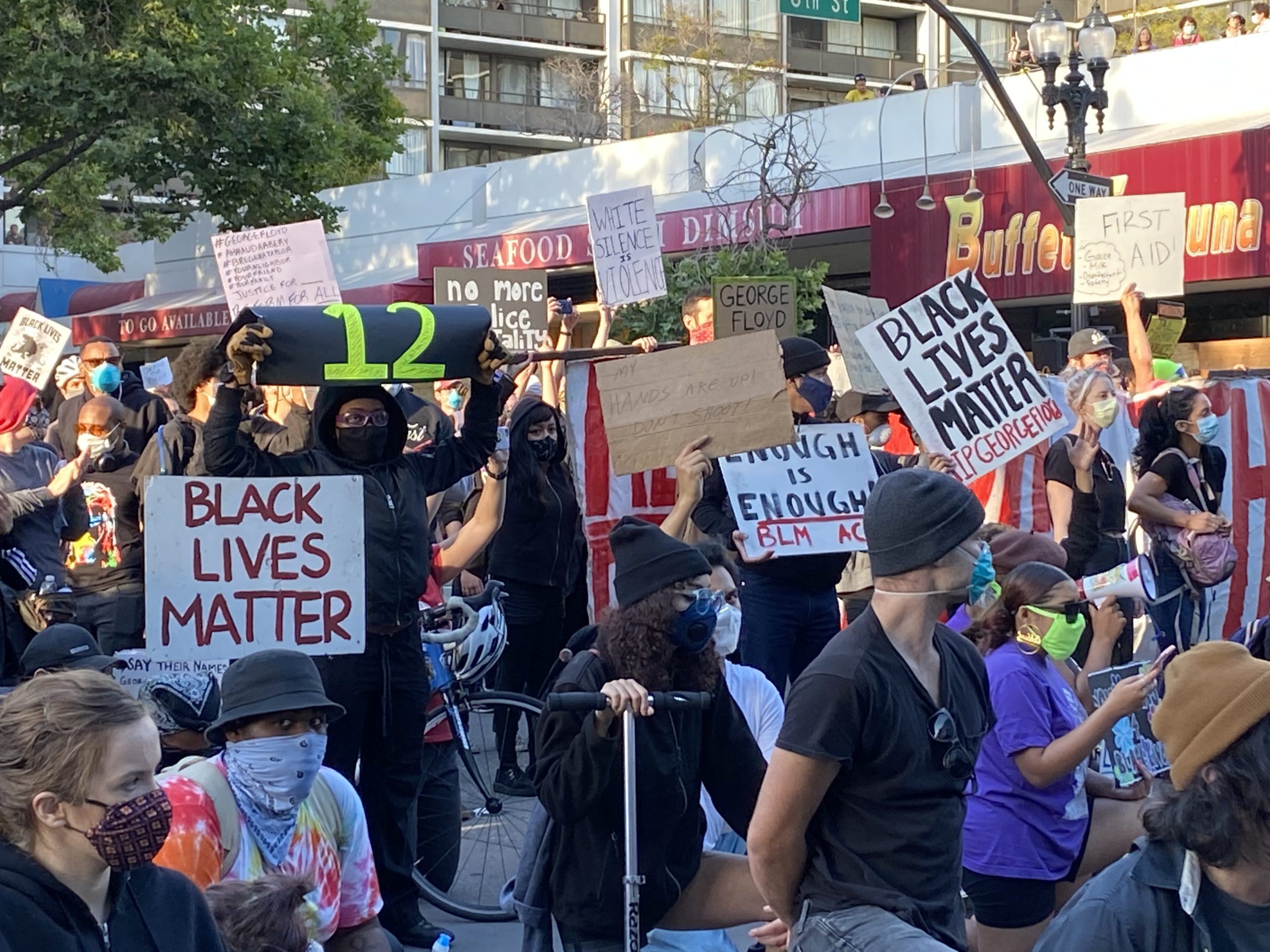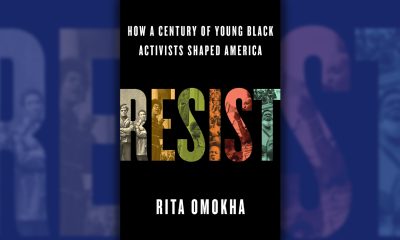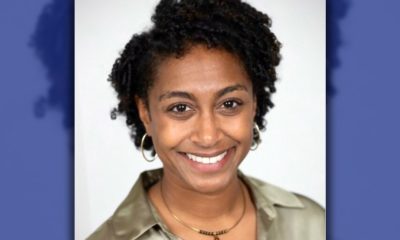Activism
Say Their Names in the Streets, Online to Achieve Justice
Overall, our report found that the names Ahmaud Arbery, Breonna Taylor and George Floyd were shared online nearly 50 million times from last June to September — making it clear that saying the names of the victims of racial injustice was essential for political action.

The Black experience in America has always been a story of struggle. From the plantation to the project block, from Emmett Till to Ahmaud Arbery, and from Tulsa, Okla., to Minneapolis, Minn., we have constantly fought for equality and fair treatment under the law, only to have those same laws be used against us.
The past year has been particularly challenging — with the names of George Floyd, Breonna Taylor and others becoming indelibly etched into our collective memory and millions of people taking to the streets to protest these crimes against the Black community. As we prepare to celebrate Juneteenth, we must look back on all the events of the past year with clear eyes to examine both the tragedies and triumphs our community has witnessed.
There have been moments of hope that the system is finally edging toward equality, like the recent conviction of former Minneapolis police officer Derek Chauvin for murdering George Floyd by kneeling on his neck for nine minutes while Floyd called out “I can’t breathe.” Chauvin’s conviction and sentencing marks one of the few times in the painful history of Black people in America when law enforcement was held accountable for the wanton acts of violence they perpetrate against our community.
But for every conviction like Chauvin’s, there is a long, tragic history of innocent Black men and women being murdered – their deaths generating little more than a passing mention on the local news and their killers going unpunished. From Medgar Evers to Breonna Taylor, our country’s history is filled with these injustices that the powers-at-be try to sweep under the rug.
Floyd’s death, which was captured in brutal clarity on a bystander’s cellphone, along with those of Arbery, Taylor and so many more challenged the status quo of racial injustice like never before. Millions of Americans of every race, color and creed stood up, spoke out and made Black Lives Matter the largest social movement in country’s history.
Starting last summer, “Say Their Names” became a rallying cry for millions of Americans across the country tired of police brutality and racial injustice. From Minneapolis to Manhattan, Atlanta to Los Angeles, we took to the streets of America’s biggest cities and smallest towns under a blazing summer sun to voice our anger. All races, colors, and creeds marched on Wash., D.C. to let leaders know that it was time to stop fanning the flames of racism and to declare that we would remember who was guilty.
We will continue to organize. We will continue to march. We will continue to “say their names” until their justice – not just for Breonna Taylor and Ahmaud Arbery, but for every Black and Brown person in America who has experienced systemic racism, police brutality and political indifference to these injustices.
While our voices were seen on television sets and computer screens across the world, and we applaud the tireless work on the ground of leaders like Rev. Al Sharpton and National Action Network, our voices were also heard through our online activism – which for many was the only way to speak out during the COVID-19 pandemic – as we demanded politicians take notice and take action at both the state and local level.
A new report released earlier this year by The 400 Foundation, The BLK+Cross and Marathon Strategies reveals how our new era of digital demonstrations and online organization is driving real change on social justice issues. The analysis found that states with the most online conversations about social justice in 2020 also saw the most legislative action on police reform. In fact, the four states most mentioned in social justice conversations — Minnesota, Georgia, New York, and Washington, D.C. — saw 110 police reform measures introduced.
Overall, our report found that the names Ahmaud Arbery, Breonna Taylor and George Floyd were shared online nearly 50 million times from last June to September — making it clear that saying the names of the victims of racial injustice was essential for political action.
In the coming weeks and months, we must say their names again as we remember their lives and the injustices they suffered. We must say their names during public demonstrations in city streets. We must say them on Twitter, Facebook, Instagram, and throughout the digital universe. And we must keep saying them until we achieve justice for them, their families, and the countless Black lives lost to racial violence.
Rev. Reginald Bachus is a former pastor at the Abyssinian Baptist Church in Harlem and the president of the 400 Foundation.
Activism
Oakland Post: Week of January 1 – 7, 2025
The printed Weekly Edition of the Oakland Post: Week of January 1 – 7, 2025

To enlarge your view of this issue, use the slider, magnifying glass icon or full page icon in the lower right corner of the browser window.
Activism
Racially Motivated Violence Against Black Teen Prompts $10 Million Claim Against LAUSD
In December, a second altercation, on a video shared with news media, showed 4 to 6 boys attacking a Black student and using racial slurs. The video also shows a person in a safety vest trying to stop the fight and telling them to “handle it after school.” Then, the video ends.

By Solomon O. Smith, California Black Media
A distraught mother and her legal team announced a $10 million lawsuit against the Los Angeles Unified School District (LAUSD) on Dec. 16, alleging that her son was the target of bullying because of his race.
“CS DOE is a 14-year-old African American student at Verdugo High School. He is a Ninth Grader,” reads a statement the plaintiff’s attorneys shared with California Black Media (CBM).
“Almost from the first day of class (in August 2024), CS DOE was targeted by Latino students who called him racial slurs, physically attacked him and threatened to stab him.”
The family’s identity has not yet been released to the public due to safety concerns, according to their attorneys Bradley C. Gage and Caree Harper. The student’s mother is identified only as A.O. in the complaint.
The first video, filmed in August, showed several non-Black students punching and kicking a Black student in a bathroom on campus while yelling racial slurs. The mother claims that the students who attacked her son were not punished, and the administration asked her to move her son to another school for his safety.
“They wanted him to leave the school without giving any disciplinary action towards those students,” said the student’s mother. “He’s not going anywhere. He’s going to finish. I wanted him to at least stay until the December winter break, and then I was going to transfer schools for him.”
Before she could enroll her son in a different school the attacks escalated.
In December, a second altercation, on a video shared with news media, showed 4 to 6 boys attacking a Black student and using racial slurs. The video also shows a person in a safety vest trying to stop the fight and telling them to “handle it after school.” Then, the video ends.
CS DOE, a 14-year-old freshman, left the school but was followed by a car, according to Gage. Several individuals exited the vehicle, one with a “large butcher knife.” A fight ensued and two people were stabbed. The Black student was arrested for assault with a deadly weapon but was later released into his mother’s custody.
The high school freshmen is scheduled to appear in juvenile court on Feb. 1, but Harper says she will reach out to the District Attorney and make the case against charging the young man.
“His mama had to go find him because he was hiding and fleeing for his very life,” said Harper.
According to the boy’s mother, the young student is still traumatized and has not been able to return to the area because it remains unsafe. Racial slurs have also been spray painted on their home.
“I’m sad. I’m devastated, you know,” said the mother. “I still feel like they’re after him. I still feel like they can kill him, possibly.”
The LAUSD and principal of Verdugo High School did not respond to CBM’s requests for comment.
If you are – or someone you know is – has experienced a hate crime or hate incident, please visit CAvsHate.org for more information and to find out what you can do about it.
Activism
2024 In Review: 7 Questions for the California Association of Black School Educators
CABSE members represent governmental agencies, charter schools and charter school organizations, public school districts, traditional public schools, and community colleges. The organization’s primary goal is to expand PK-14 educational opportunities for all students in California, with an emphasis on under-represented and under-served Black students.

By Edward Henderson, California Black Media
The California Association of Black School Educators (CABSE) is an organization consisting of elected and appointed school officials, administrators and instructors from across California who are committed to advancing equity for Black students.
CABSE members represent governmental agencies, charter schools and charter school organizations, public school districts, traditional public schools, and community colleges.
The organization’s primary goal is to expand PK-14 educational opportunities for all students in California, with an emphasis on under-represented and under-served Black students.
California Black Media (CBM) spoke with CABSE President Satra Zurita and Conference Chair Micah Ali about this year’s successes, disappointments, and plans for the organization coming into the new year.
Looking back at 2024, what stands out to you as your most important achievement and why?
Ali: I would have to say that two highlights have been the ongoing support of the Bill and Melinda Gates Foundation, Engie, and other sponsors that have enabled us to bring together like-minded education leaders twice a year to collectively advance innovative and meaningful strategies to achieve change on behalf of Black students across our state.
How did your leadership and investments contribute to improving the lives of Black Californians?
Zurita: CABSE’s leadership and investment in improving the education system for Black students in our great state has resulted in a long-standing focus on transforming public education and its response to Black students. By pulling from the very wisdom of those educators and leaders who care deeply about Black students and who are showing great promise through their efforts.
What frustrated you the most over the last year?
Zurita: Continuing to see the deep impact of COVID-19 Pandemic school site closures on students academically and emotionally — especially Black students. This makes our work and our advocacy more vital than ever.
CBM: What inspired you the most over the last year?
Zurita: Seeing our CABSE convenings grow in depth and breadth — our strategies, powerful content and reach.
What is one lesson you learned in 2024 that will inform your decision-making next year?
Ali: Our Blueprint for Education Equity is a crowd-sourced framework of strategies that have shown great promise for improving the education experiences and opportunities for Black students. In 2024, we developed an equity self-assessment tool for districts to use in evaluating their own efforts on behalf of Black students. Strategies are helping Black students.
In one word, what is the biggest challenge Black Californians face?
Zurita: Many Black students across our state are dealing with a host of challenges: homelessness, food insecurity, exposure to violence, not to mention bias remains a pervasive problem. To add to the challenge, educators are worn out, tired, and frustrated. We now need to think about how we can simultaneously inspire and empower students and educators alike. The system needs an overhaul.
What is the goal you want to achieve most in 2025?
Zurita: In 2025, we hope to stand CABSE up as a fully functioning non-profit organization engaged in research and policy design.
Ali: We also aim to deepen the content of our convenings, including adding a Math Track and what we are calling Social Determinants of Education Track to our annual conference and institute, which will address those social contexts that prevent Black students from realizing their potential as students.
-

 Activism2 weeks ago
Activism2 weeks agoBooks for Ghana
-

 Activism3 weeks ago
Activism3 weeks agoPost News Group to Host Second Town Hall on Racism, Hate Crimes
-

 Activism3 weeks ago
Activism3 weeks agoButler, Lee Celebrate Passage of Bill to Honor Congresswoman Shirley Chisholm with Congressional Gold Medal
-

 Arts and Culture2 weeks ago
Arts and Culture2 weeks agoPromise Marks Performs Songs of Etta James in One-Woman Show, “A Sunday Kind of Love” at the Black Repertory Theater in Berkeley
-

 Activism3 weeks ago
Activism3 weeks agoDelta Sigma Theta Alumnae Chapters Host World AIDS Day Event
-

 Activism2 weeks ago
Activism2 weeks ago‘Donald Trump Is Not a God:’ Rep. Bennie Thompson Blasts Trump’s Call to Jail Him
-

 Business3 weeks ago
Business3 weeks agoLandlords Are Using AI to Raise Rents — And California Cities Are Leading the Pushback
-

 Activism3 weeks ago
Activism3 weeks agoOakland Post: Week of December 11 – 17, 2024




















































